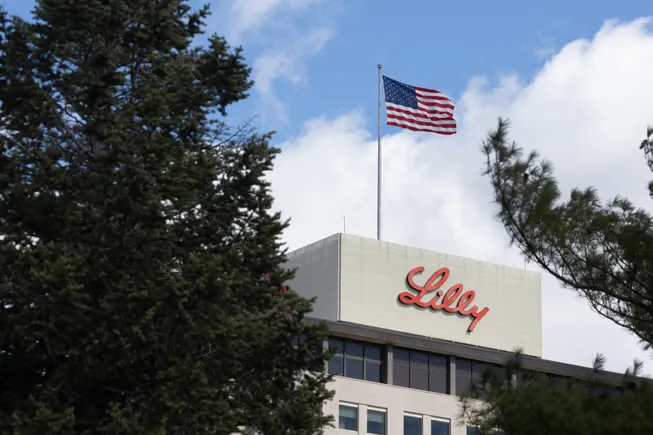Eli Lilly’s remarkable rise in the pharmaceutical industry has been nothing short of extraordinary since 2020. The company, founded by a Civil War veteran nearly 150 years ago, recently achieved a significant milestone by becoming the first drugmaker to reach a market value of $1 trillion. This achievement is a result of the exponential growth in Lilly’s stock price, driven primarily by its success in developing drugs for obesity. What was once a stock valued at under $100 in 2018, now trades for more than ten times that amount.
The key to Lilly’s success lies in its groundbreaking drugs, such as Zepbound and Mounjaro, both of which contain the active ingredient tirzepatide. Zepbound, a "GLP-1" therapy for obesity, has shown remarkable results in helping individuals shed a significant amount of weight, while also showing potential benefits for the heart, kidneys, and other organs. On the other hand, Mounjaro has proven to be highly effective in managing diabetes, with four out of five patients achieving healthy blood sugar levels.
The impressive sales performance of Zepbound and Mounjaro has propelled Lilly to the forefront of the pharmaceutical industry, surpassing competitors like Merck & Co. and Johnson & Johnson. In fact, Lilly’s combined sales of these drugs reached nearly $19 billion in the first nine months of 2025, making it the world’s best-selling drug. This success has positioned Lilly as a dominant player in a market expected to reach $100 billion in annual sales by 2030.
Despite historically being smaller in size compared to industry giants like J&J and Pfizer, Lilly’s trillion-dollar market value is a testament to its innovation and strategic focus on addressing critical medical needs. The company’s workforce of 47,000 employees may be smaller than some of its competitors, but its impact on the pharmaceutical landscape is undeniable.
Looking ahead, Lilly’s future prospects remain bright, with plans to introduce one of the first GLP-1 pills for weight loss to the market. Analysts have varying opinions on its potential success, but Lilly’s substantial investments in manufacturing and recent regulatory approvals suggest a promising outlook. Additionally, the company is exploring new avenues in obesity treatment that could revolutionize weight loss strategies.
In conclusion, Lilly’s unprecedented success in the pharmaceutical industry can be attributed to its groundbreaking drugs, strategic investments, and visionary leadership. As the company continues to push the boundaries of medical innovation, its trillion-dollar market value solidifies its position as a powerhouse in the healthcare sector.
Gwendolyn Wu contributed reporting. In recent years, the concept of self-care has gained significant traction as people have become more aware of the importance of taking care of their mental, emotional, and physical well-being. Self-care is more than just taking a bubble bath or getting a massage; it is a holistic approach to self-improvement and overall wellness.
Self-care encompasses a wide range of activities and practices that help individuals prioritize their own needs and nurture their own well-being. This can include anything from practicing mindfulness and meditation to setting boundaries with others and prioritizing rest and relaxation.
One of the key aspects of self-care is the importance of setting boundaries with others. This means learning to say no to things that do not serve you or that drain your energy, and prioritizing your own needs and well-being. Setting boundaries can be difficult, especially for people who are used to putting others’ needs before their own, but it is an essential part of self-care.
Another important aspect of self-care is practicing mindfulness and meditation. Mindfulness is the practice of being present in the moment and fully experiencing whatever is happening without judgment. This can help reduce stress and anxiety, improve focus and concentration, and promote overall well-being. Meditation is a way to train the mind to focus and be present, and can help reduce stress and improve mental clarity.
Physical self-care is also an important part of overall well-being. This can include things like eating a balanced diet, getting regular exercise, and getting enough sleep. Taking care of your physical health can have a significant impact on your mental and emotional well-being as well.
Self-care is not a one-size-fits-all approach; what works for one person may not work for another. It is important to explore different self-care practices and find what works best for you. This may involve trying different activities, talking to a therapist or counselor, or seeking support from friends and loved ones.
Overall, self-care is an essential part of maintaining overall well-being and happiness. By prioritizing your own needs and taking care of yourself, you can better cope with stress, improve your mental and emotional health, and live a more fulfilling life. So take some time for yourself today and practice some self-care – you deserve it.


